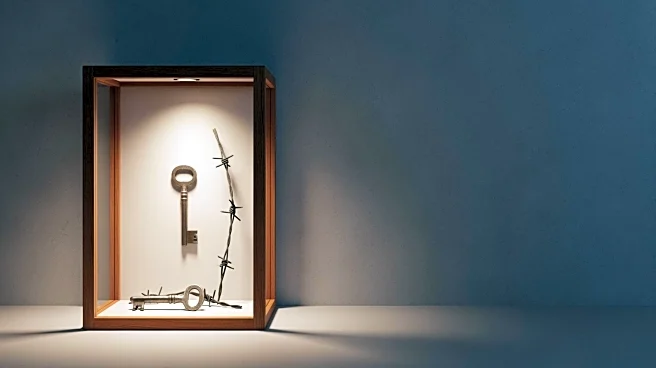What's Happening?
A planned auction in Germany of artefacts from Nazi concentration camps has been canceled following a public outcry. The auction, organized by Felzmann, included items from Buchenwald and Auschwitz, such
as letters from prisoners and medical documents related to forced sterilizations. Poland's Deputy Prime Minister Radoslaw Sikorski thanked his German counterpart for agreeing that the auction should be prevented. The auction listing was removed from the website, and the German State Minister for Culture emphasized that such documents should not be part of private collections.
Why It's Important?
The cancellation of the auction is significant as it reflects the ethical challenges associated with the sale of Holocaust-related items. The public reaction underscores the importance of preserving the dignity of Holocaust victims and ensuring their stories are not exploited for commercial gain. This incident may influence future policies regarding the sale and preservation of historical artifacts, particularly those related to sensitive historical events. It highlights the need for respectful handling of such items, ensuring they are used for educational and memorial purposes rather than private profit.
What's Next?
The cancellation may lead to increased efforts to regulate the sale of historical artifacts related to atrocities. Poland's culture ministry plans to investigate the provenance of the artefacts to determine if any should be returned to Poland. This could result in further international cooperation to ensure the respectful preservation of Holocaust-related items. Auction houses may face pressure to adopt stricter ethical guidelines, and there could be calls for legislative action to prevent similar incidents in the future.
Beyond the Headlines
The incident raises broader questions about the commodification of history and the responsibilities of those who handle sensitive artifacts. It highlights the need for a balance between preserving history and respecting the dignity of victims. The public response may lead to deeper discussions on how societies remember and honor past atrocities, potentially influencing cultural and educational approaches to Holocaust remembrance.









